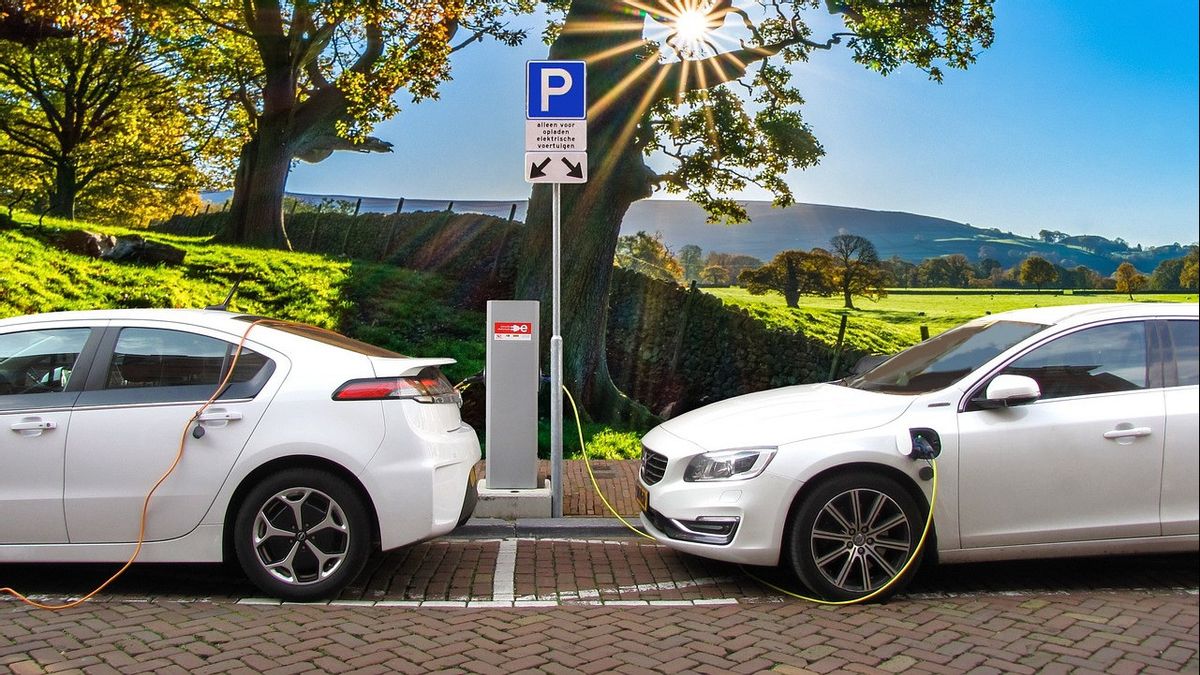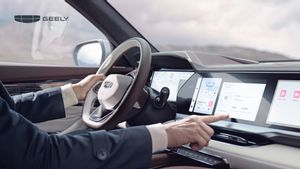JAKARTA - If you drive an electric car, your main concern may be 'distance anxiety' - usually worrying about whether you have enough power to achieve your goals.
However, another problem you may not realize is the risk of your vehicle being remotely accessed by cybercriminals - and your personal data is stolen.
Jake Moore, a security specialist at ESET, said electric cars (EVs) run software that has'scat and a weak spot' that hackers can target.
Installed on car software there are applications that often request details such as email addresses, phone numbers, and even credit card details.
So if they gain access to a vehicle (or charger), this personal data can be stolen and potentially sold on the dark web, causing loss of funds, fraud, and more.
In the UK, gasoline and diesel vehicles are being replaced by this technology, but Moore thinks security flaws in EV software may be forgotten.
"As companies and governments compete to build and install charging stations, malicious actors are not far behind and seek to abuse technology that may be weak," Moore told MailOnline.
"So many new technologies are designed with a single goal - production speed - and therefore, security is ignored and devices are often left with existing and upcoming defects," he added.
EVs connect to the internet and receive an 'over the air' update - delivered via wireless networks - to update their software. But like any computer or smart device, EVs are prone to unauthorized access if they don't receive updates regularly or if they run outdated software.
As the Belgian research team shows with Tesla, electric cars that do not run the latest software can also be opened and have the potential to be stolen, if criminals are close enough.
The safety concerns around electric cars and their infrastructure are very complex, experts say, but this has not stopped the government from competing to launch this technology.
Pete Nicoletti, a researcher at security firm Check Point, agrees that unauthorized access to EVs is a threat, but the bigger problem is EV chargers in public.
Hackers have manipulated EV chargers to display pornographic content on their screens - but the potential security threat is worse.
Nicoletti says that it's very 'easy' to compromise EV chargers, who are connected to the internet, run software, and have display screens like any other device.
"All chargers connect via the internet to their manufacturers for updates and other providers for billing," Nicoletti told MailOnline.
Just like PC computers, chargers use firewalls - a barrier that stops anyone from performing unauthorized web activities - as protection.
However, some chargers did not do so, making them vulnerable to cyber attackers with malicious intent and malicious software updates.
According to Nicoletti, chargers can also be physically changed, which says that criminals are only 'four screws' away from attempts to access computer components.
"The EV charger uses an "open-source" computing platform that has a well-known compromise and known access," he told MailOnline. "They are usually not monitored by CCTV and are not "enforced" against physical attacks, such as ATMs."
Most of the time EV drivers have to pay to use a general charger by tapping the payment card into the machine, such as a credit card or uncontacted debit. But like ATM scams, a compromised EV charger can make details of your card fall into the wrong hands and unauthorized transactions on your account.
Furthermore, users charging electric vehicles regularly may leave a data footprint - a potential privacy risk.
When charging EVs, users often provide RFID cards as proof of identity at charging stations, thus transmitting personal data into the system.
VOIR éGALEMENT:
If users are not anonymous and at the same time it is known which charging station they have used, this information can be used to create a movement profile.
Cybercriminals can also make changes to individual chargers so as to power them for free when they want them, or access the entire charging network via the cloud to knock them out.
More serious issues include a charging safety feature compromised with overloaded and damaged cars, potentially causing fires.
"Electronic control cases controlling electricity to cars are vulnerable to physical and program changes, modifications, and compromises," Nicoletti said. "This level of commission can activate and shut down chargers and affect the power grid, or overcharge on cars, or damage car batteries."
Countries around the world are trying to increase the number of EVs on the road so that gasoline vehicles can be eliminated, citing health concerns about their toxic emissions from exhausts.
The English, Chinese, Japanese, Arabic, and French versions are automatically generated by the AI. So there may still be inaccuracies in translating, please always see Indonesian as our main language. (system supported by DigitalSiber.id)














